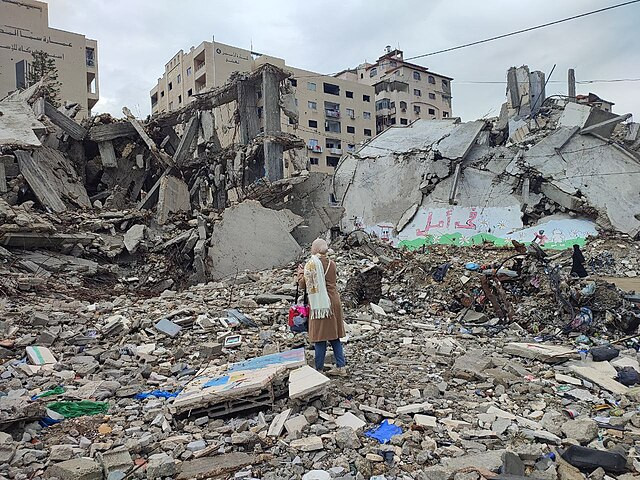At least 70 Palestinians were killed in Israeli airstrikes across the Gaza Strip on Wednesday, according to the territory's health authorities, as Prime Minister Benjamin Netanyahu signaled a further escalation of Israel's military campaign and rejected any truce with Hamas, even if the group released remaining hostages.
The strikes, concentrated in northern and southern Gaza, killed 60 people in Jabaliya alone, including 22 children, according to Gaza's Health Ministry. Another 10 fatalities were reported in Khan Younis, where Israeli forces targeted what they described as militant infrastructure beneath the European Hospital.
Israeli officials declined to comment on the specific strikes but confirmed evacuation orders had been issued in the Jabaliya and Beit Lahiya areas. "It means destroying Hamas," Netanyahu said Tuesday in comments released by his office, declaring Israeli forces were "just days away" from a new phase of the operation.
Footage from Jabaliya showed residents digging through rubble with bare hands and phone lights, searching for victims. Hadi Moqbel, whose relatives were killed, said: "We saw body parts on the ground, children killed, the woman killed and a baby killed-his head was exploded like a flower. He was two months old."
The strikes came one day after Hamas released Edan Alexander, an Israeli-American hostage, raising hopes for a ceasefire. But Netanyahu dismissed the notion of halting operations.
The conflict, which began after a Hamas-led attack on Israel on October 7, 2023, has killed more than 52,900 Palestinians, many of them women and children, according to Gaza's Health Ministry. Israel's initial attack followed the killing of 1,200 people and the abduction of 251 hostages by militants.
French President Emmanuel Macron condemned the ongoing Israeli blockade on humanitarian aid. "There's no medicine. We can't get the wounded out. Doctors can't get in. What he's doing is a disgrace. It's a disgrace," Macron said Tuesday on TF1 television. He demanded the immediate reopening of Gaza's borders to aid convoys and called for efforts to demilitarize Hamas and release hostages.
The blockade, imposed by Israel since March 2, has pushed Gaza to the brink of famine, according to international food security experts. Nearly half a million residents are experiencing "catastrophic" hunger, with 1 million more unable to secure consistent food supplies, according to the Integrated Food Security Phase Classification.
While Israel endorsed a U.S.-backed proposal to resume aid deliveries through private contractors, the plan has been rejected by the United Nations and international aid agencies. Gaza's population of 2.3 million relies almost entirely on external assistance, most of which has been cut off during the 10-week military siege.
The violence escalated as U.S. President Donald Trump toured the Gulf region, meeting leaders in Saudi Arabia, Qatar, and the United Arab Emirates. Trump said in Riyadh that "the people of Gaza deserve a better future" and promised more hostage releases to follow Alexander. His envoys, Steve Witkoff and Adam Boehler, met hostage families in Tel Aviv and expressed optimism about renewed negotiations.






